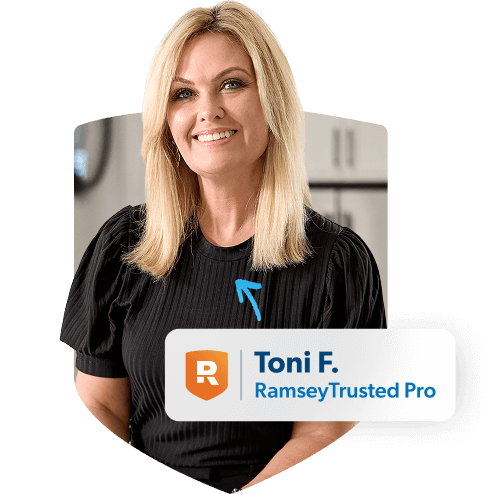
Key Takeaways
- August, September and October are often the best months to buy because prices go down while inventory stays relatively high.
- Home prices are usually lowest in winter, but limited inventory can make it harder to find the right house.
- Spring typically brings the most new listings—but also the most competition and the highest prices.
- The best time to buy a house is when you’re financially ready—with no debt, a full emergency fund and a solid down payment.
Following the housing market can feel like riding a roller coaster—one month it’s up, the next it’s down. So, when’s the right time to hop on?
Late summer and early fall are often seen as sweet spots thanks to lower prices and more homes on the market. But timing isn’t the only thing that matters. Yes, you need to understand the housing market cycles—but more importantly, you need to know if you’re financially ready.
So, let’s take a deep dive into both of those areas. That way, you’ll be set up for success as you make one of the biggest purchases of your life.
What’s the Best Month to Buy a House?
If possible, it’s good to buy a house at the time of year when prices are lowest and inventory is highest. Traditionally, that’s August, September or October. Prices usually go down in late summer and early fall, since fewer buyers are looking at homes and inventory is still pretty high after the busy spring selling season.
On the flip side, the worst time to buy a house is typically the late spring and early summer (May through July). That’s because tons of people are in the market to buy a home—which means you’ll face more competition. Many home buyers, especially those with kiddos, want to buy a home in time to get moved and settled before the school year starts.
But keep in mind: No one can predict real estate trends with 100% accuracy. So never let what month it is make or break your home-buying decision—only your financial situation can truly determine the right time for you. No matter what the market is doing, buying a house is a bad idea when you’re in debt, don’t have an emergency fund, or haven’t saved up a strong down payment.
To see the past year’s trends for yourself, check out the chart below:
|
Month |
Home Price (Median) |
Inventory (Millions) |
|
July 2024 |
$427,200 |
1.18 |
|
August 2024 |
$419,800 |
1.20 |
|
September 2024 |
$411,400 |
1.19 |
|
October 2024 |
$411,700 |
1.19 |
|
November 2024 |
$409,200 |
1.16 |
|
December 2024 |
$408,500 |
0.99 |
|
January 2025 |
$398,100 |
1.03 |
|
February 2025 |
$400,900 |
1.08 |
|
March 2025 |
$407,300 |
1.15 |
|
April 2025 |
$418,000 |
1.26 |
|
May 2025 |
$428,800 |
1.34 |
|
June 2025 |
$438,600 |
1.34 |
|
July 2025 |
$428,500 |
1.361 |
Buy or Sell Your Home With an Agent Who Puts You First
Finding a reliable agent who actually cares can be a headache. But RamseyTrusted® makes it easy—connecting you with local market experts who’ll fight for you to get the best deal.
What’s the Cheapest Month to Buy a House?
Home prices are usually at their lowest in winter. In fact, based on the 13-month period in the table above, home prices were at their lowest in January 2025—at a median of $398,100. So if the best time of year to buy a house for you means getting the lowest price, be sure to slip on your warm woolen mittens before you go to showings.
But remember: You want to find the sweet spot of low prices and high inventory. While prices go down during the winter, fewer houses hit the market during the busy holiday season (not to mention, some regions have the cold and snow to deal with). In the chart above, the number of homes for sale saw its greatest drop—170,000 homes—from November to December.
Still, less demand for homes could give you some bargaining power when it comes time to make an offer on a house.
What Month Has the Highest Home Inventory?
Most houses go on the market in the spring. In 2025, the number of homes for sale nationwide shot up an additional 110,000 from March to April—the fastest growth rate all year. That number kept growing into the summer and reached 1.36 million home listings by July.
On the downside, spring and summer are also the busiest house-hunting seasons, so competition and prices will likely be at their highest. This year, home prices shot up $10,800 from April to May and reached their highest point of the year so far in June at $438,600. But if you can budget for it, it’s often worth shopping when there’s an abundance of homes on the market to choose from.
Want More Expert Real Estate Advice?
Sign up for our newsletter! It’s packed with practical tips to help you tackle the housing market and buy or sell your home with confidence—delivered straight to your inbox twice a month!
The Best Time to Buy Depends on You
Remember: Even though you can try timing your home purchase just right to find the widest selection or pay the lowest price, the best time to buy a house is when your finances are in order.
Here are the biggest signs you’re ready to buy a house:
- You have zero debt and a full emergency fund. Expenses like student loans, credit card debt and car payments keep you from having the margin you need to save for a home. And once you’re in a home, you’ll need an emergency fund to cover unexpected costs when they inevitably pop up. So dump the debt and save up 3–6 months of your typical expenses for emergencies.
- Your house payment won’t be more than 25% of your take-home pay. This includes principal, interest, property taxes, home insurance, private mortgage insurance (PMI) and homeowners association (HOA) fees.
- You’ve saved up a strong down payment. Taking out a mortgage with a super low or no down payment will have you paying extra in interest and fees and keep you in debt for decades. That’s why you should save up a down payment of at least 5–10% if you’re a first-time home buyer, or 20% if this isn’t your first rodeo. Putting down 20% or more also helps you dodge PMI—an extra monthly fee that protects the lender, not you, if you can’t make your payments.
- You can handle homeownership costs. Depending on the age of the home you buy, you could end up having to tackle several home maintenance projects in a year, costing hundreds to thousands of dollars. When you move from renting to owning a house, there’s no more landlord to fix things for you. Also, moving into a bigger space usually means your utility bill will be higher—so make sure you budget for these things.
- You plan on staying put for a while. All the up-front costs and work you’d put into getting a house probably won’t be worth the small amount of value you’d gain by living in it for only a short amount of time. But if you love your city and plan to stay there for at least three years, buying a house is a great investment.
If each of those statements sounds like you—congrats! Now could be the best time for you to buy a house.
Next Steps
- Figure out your home budget by using our home affordability calculator.
- Get the ball rolling by getting preapproved for the right mortgage.
- Find an experienced real estate agent who knows your market like the back of their hand. For a quick and easy way to find agents in your area, try our free RamseyTrusted® program.
Did you find this article helpful? Share it!

We Hear You!
We’re considering adding the ability to save articles to your Ramsey account.




